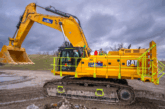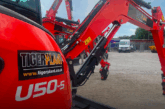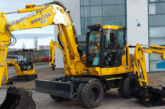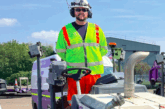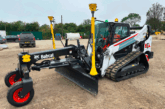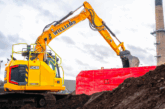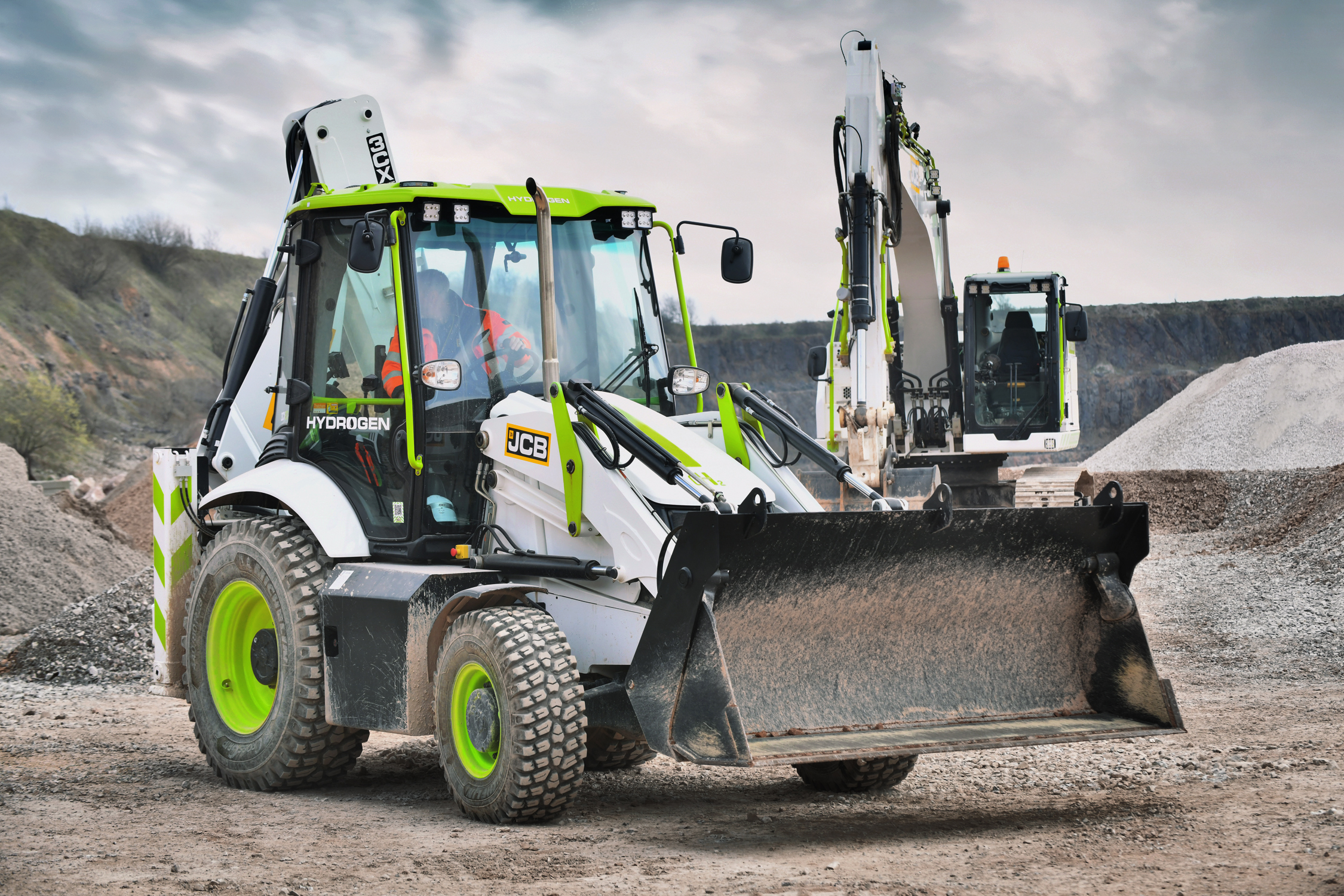
JCB’S £100 million investment in its project to produce super-efficient hydrogen engines has reached a new milestone with the production of its 50th hydrogen combustion engine.
Chairman Lord Bamford said: “The JCB engineering team has done a fantastic job to develop a brand-new hydrogen engine. They have gone back to first principles to completely re-design the combustion process to work for hydrogen. In doing so the team achieved two major things: secured JCB’s place in history as the first construction equipment company to develop a fully working combustion engine fuelled by hydrogen and steered us towards the production of a landmark 50 hydrogen combustion engines.”
As the company examines future fuels which deliver zero emissions, it has left no stone unturned. In its search for a mobile fuel which can be taken to the machine, ensuring maximum uptime and fast refuelling, HVO, biogas, E-fuels, ammonia and hydrogen have all come under the microscope.
Lord Bamford said: “The majority of these alternative fuels require the production of hydrogen to make, so it makes perfect sense to use hydrogen in the first place because it is a clean zero carbon fuel which can be produced from renewable energy. Hydrogen also offers a potential solution to the challenge of batteries on larger machines; it allows for fast refuelling and is a mobile fuel solution, allowing fuel to be taken to the machine.”
As part of its hydrogen development, JCB also investigated its use in fuel cells and in July 2020 unveiled the construction industry’s first ever hydrogen powered excavator – a 20-tonne 220X.
For the time being, JCB has come to the conclusion that fuel cells are too expensive, too complicated and not robust enough for construction and agricultural equipment.
In challenging the JCB engineering team to think differently using technology that is around us in a zero-carbon way, the JCB hydrogen engine was born. Now these hydrogen engines are already powering prototype backhoe loaders and Loadall telescopic handlers and the company has recently unveiled its very own designed and built mobile refuelling bowser to take the fuel to the machines. The bowser has enough hydrogen to fill 16 hydrogen backhoe loaders and is able to be transported either on the back of a modified Fastrac tractor or on a trailer.

